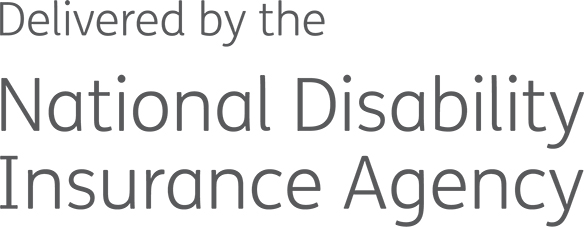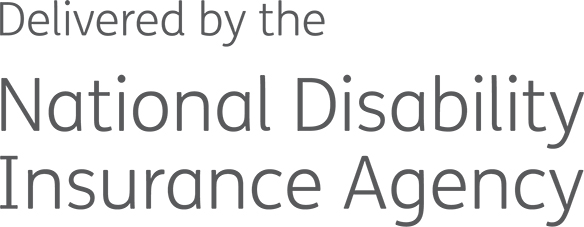
 Our reference:
Our reference: FOI 24/25-1212
GPO Box 700
Canberra ACT 2601
1800 800 110
16 May 2025
ndis.gov.au
Tessa Kelton
By email: xxxxxxxxxxxxxxxxxxxxxxxxxx@xxxxxxxxxxx.xxx.xx
Dear Tessa Kelton
Freedom of Information request — Notice of Decision
Thank you for your correspondence of 25 November 2024, seeking access under the
Freedom of Information Act 1982 (FOI Act) to documents held by the National Disability
Insurance Agency (NDIA).
I apologise for the delay in processing your request.
The purpose of this letter is to provide you with a decision on your request.
Scope of your request
You have requested access to the following documents:
“Please provide all documents, in full, pertaining to the following Technical Advisory
Branch (TAB) research document titles.
1. Specialised driving lessons
2. Comparison of catheter models
3. Osteopathy
4. Chiropractic
5. Project management and quality tools
6. Facilitated communication
7. Air conditioning and thermoregulation 8. Reducing ABA over time 9. Autistic burnout
10. Exercise and physiotherapy for progressive conditions 11. Administering medication
in Australia”
Timeframe
1
A 30-day statutory period for processing your request commenced from 25 November 2024
in accordance with section 15(5)(b) of the FOI Act. The due date for a decision on access
was 25 December 2024.
I note this time has lapsed and as a result we are deemed to have
refused your request under section 15AC of the FOI Act.
Despite this, I have continued to process your application. I apologise for the delay and
confirm that you retain your right to seek external review of this decision.
Disclosure log documents
On 12 March 2025, you were emailed some of the requested documents administratively, as
they have been previously released, namely documents for points 3, 4, 7, 8, 9 and 11. The
remaining documents will make up this request.
Decision on access to documents
I am authorised to make decisions under section 23(1) of the FOI Act. My decision on your
request and the reasons for my decision are set out below.
I have identified 4 documents, which fall within the scope of your request.
The documents were identified by TAPIB who conducted searches of NDIA’s systems, using
all reasonable search terms that could return documents relevant to your request, and
consulting with relevant NDIA staff who could be expected to be able to identify documents
within the scope of the request.
I have decided to grant access to 4 documents in part.
In reaching my decision, I took the following into account:
your correspondence outlining the scope of your request
the nature and content of the documents falling within the scope of your request
the FOI Act
the FOI Guidelines published under section 93A of the FOI Act
consultation with relevant NDIA staff
factors relevant to my assessment of whether or not disclosure would be in the public
interest
the NDIA’s operating environment and functions.
Reasons for decision
2
Personal privacy (section 47F)
Section 47F of the FOI Act conditionally exempts a document(s) if its disclosure would
involve the unreasonable disclosure of personal information about any person (including a
deceased person).
I have identified material in the documents falling within scope of your request which
contains personal information of staff details.
Under section 47F(2) of the FOI Act, in determining whether the disclosure of documents
would involve unreasonable disclosure of personal information, regard must be had to:
a. the extent to which the information is well known;
b. whether the person to whom the information relates is known to be (or to have been)
associated with the matters dealt with in the document;
c. the availability of the information from publicly accessible sources; and
d. any other matters that the agency considers relevant.
Against these criteria, I take the view that:
a. it is apparent from the information that an individual is identifiable; and
b. the information referred to above is not readily available from publicly accessible
sources.
With reference to the assessment above, it would be unreasonable to disclose publicly this
personal information and is therefore conditionally exempt under section 47F(1) of the FOI
Act.
Public interest considerations – section 47F
Section 11A(5) of the FOI Act provides that access to a document covered by a conditional
exemption must be provided unless disclosure would be contrary to the public interest.
I have not considered any of the irrelevant factors as set out under section 11B(4) of the FOI
Act in making this decision.
In favour of disclosure, I have considered the factors outlined in section 11B(3) of the FOI
Act, and I have determined that disclosure of the relevant information in Documents 1 to 4
would promote the objects of the FOI Act by providing access to documents held by the
government and providing access to information.
3
Against disclosure, I consider that disclosure of the relevant information in Documents 1 to 4:
would not contribute to the publication of information of sufficient public interest to justify
the likely harm caused by release
would not enhance Australia’s representative democracy in the ways described in
section 11B(3) of the FOI Act
would not inform any debate on a matter of public importance, or promote oversight of
public expenditure.
While there is limited public interest in the disclosure of information conditionally exempt
under section 47F of the FOI Act, the harm that would result from disclosure is that it could
reasonably be expected to:
affect an individual’s right to privacy by having their personal information in the public
domain.
In summary, I am satisfied that the factors against disclosure of the information outweigh the
factors in favour of disclosure and that, on balance, it would be contrary to the public interest
to release this information to you. Accordingly, I have decided that the relevant information in
Documents 1 to 4is exempt under section 47F of the FOI Act.
Release of documents
The documents for release, as referred to in the Schedule of Documents at
Attachment A,
are enclosed.
4
 Rights of review
Rights of review
Your rights to seek a review of my decision, or lodge a complaint, are set out at
Attachment B.
Should you have any enquiries concerning this matter, please do not hesitate to contact me
by email at xxx@xxxx.xxx.xx.
Yours sincerely
Kate (KIM627)
A/Assistant Director – Freedom of Information
Non Personals Team
Information Release, Privacy and Legal Operations Branch
Reviews and Information Release Division
5
 Attachment A
Schedule of Documents for FOI 24/25-1212
Document
Page
Description
Access Decision
number
number
Attachment A
Schedule of Documents for FOI 24/25-1212
Document
Page
Description
Access Decision
number
number
1 1-8
Research Paper - Specialised driving lessons
PARTIAL ACCESS
Exemption claimed:
Date: 1 December 2022
s47F – personal privacy
2 9-17
Research Paper – Outcome comparison of catheter model and
PARTIAL ACCESS
technique
Exemption claimed:
s47F – personal privacy
Date: 2 March 2022
3 18-21
Research Paper – Project management and quality tools
PARTIAL ACCESS
Exemption claimed:
Date: 21 November 2023
s47F – personal privacy
4 22-35
Research Paper – Physiotherapy and exercise for progressive
PARTIAL ACCESS
neurological conditions
Exemption claimed:
s47F – personal privacy
Date: 29 April 2024
1
 Attachment B
Your review rights
Attachment B
Your review rights
As this matter was a deemed refusal, internal review of this decision is not an option.
However, if you have concern with any aspect of this decision, please contact the NDIA FOI
team by email xxx@xxxx.xxx.xx or by post:
Freedom of Information Section
Complaints Management & FOI Branch
General Counsel Division
National Disability Insurance Agency
GPO Box 700
CANBERRA ACT 2601
Review by the Office of the Australian Information Commissioner
The FOI Act gives you the right to apply to the Office of the Australian Information
Commissioner (OAIC) to seek a review of this decision.
If you wish to have the decision reviewed by the OAIC, you may apply for the review, in
writing, or by using the online merits review form available on the OAIC’s website at
www.oaic.gov.au, within 60 days of receipt of this letter.
Applications for review can be lodged with the OAIC in the following ways:
Online:
www.oaic.gov.au
Post:
GPO Box 5218, Sydney NSW 2001
Email:
xxxxxxxxx@xxxx.xxx.xx
Phone:
1300 363 992 (local call charge)
Complaints to the Office of the Australian Information Commissioner or the
Commonwealth Ombudsman
You may complain to either the Commonwealth Ombudsman or the OAIC about actions
taken by the NDIA in relation to your request. The Ombudsman will consult with the OAIC
before investigating a complaint about the handling of an FOI request.
Your complaint to the OAIC can be directed to the contact details identified above. Your
complaint to the Ombudsman can be directed to:
Phone:
1300 362 072 (local call charge)
Email:
xxxxxxxxx@xxxxxxxxx.xxx.xx
Your complaint should be in writing and should set out the grounds on which it is considered
that the actions taken in relation to the request should be investigated.
1




